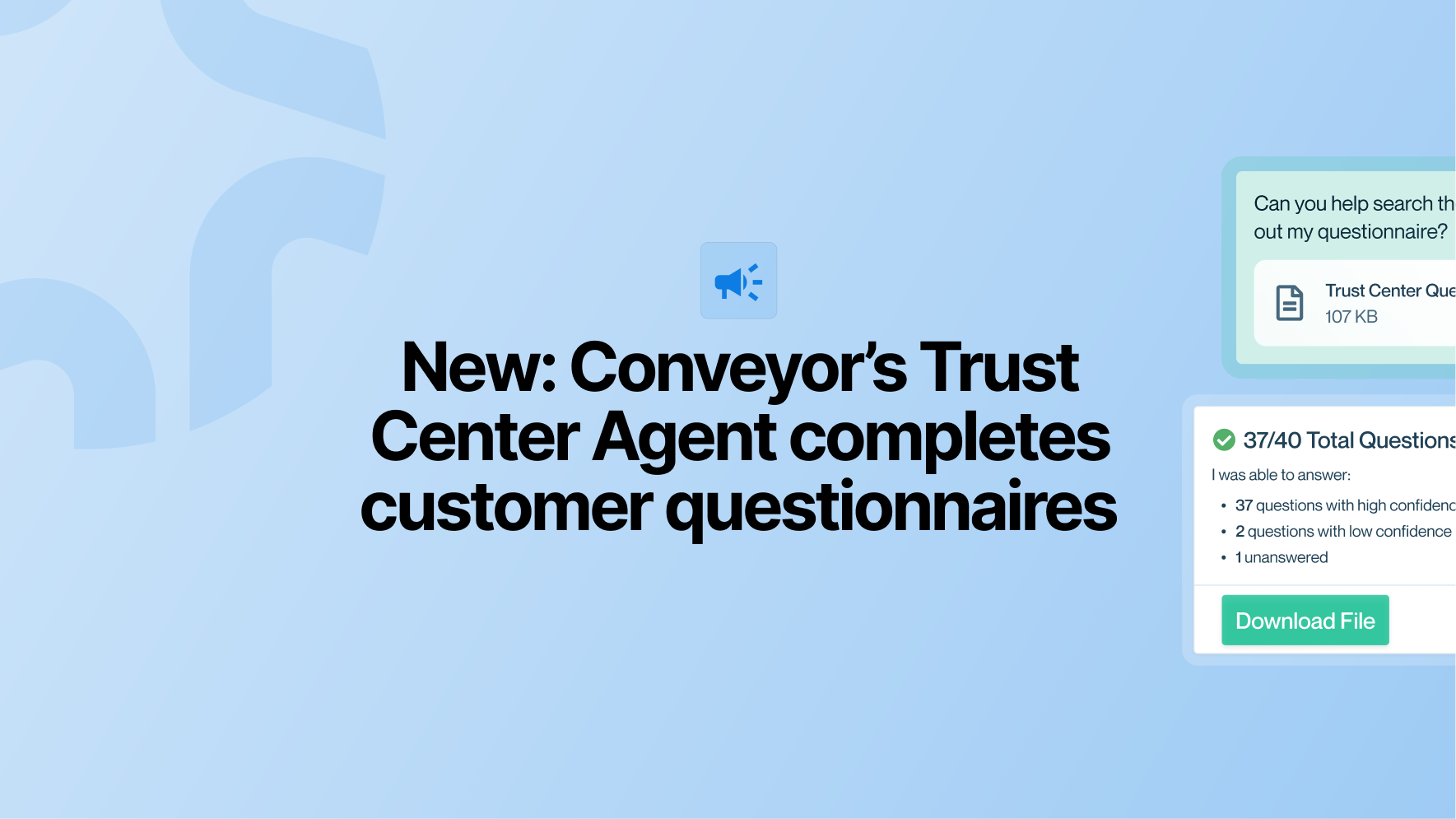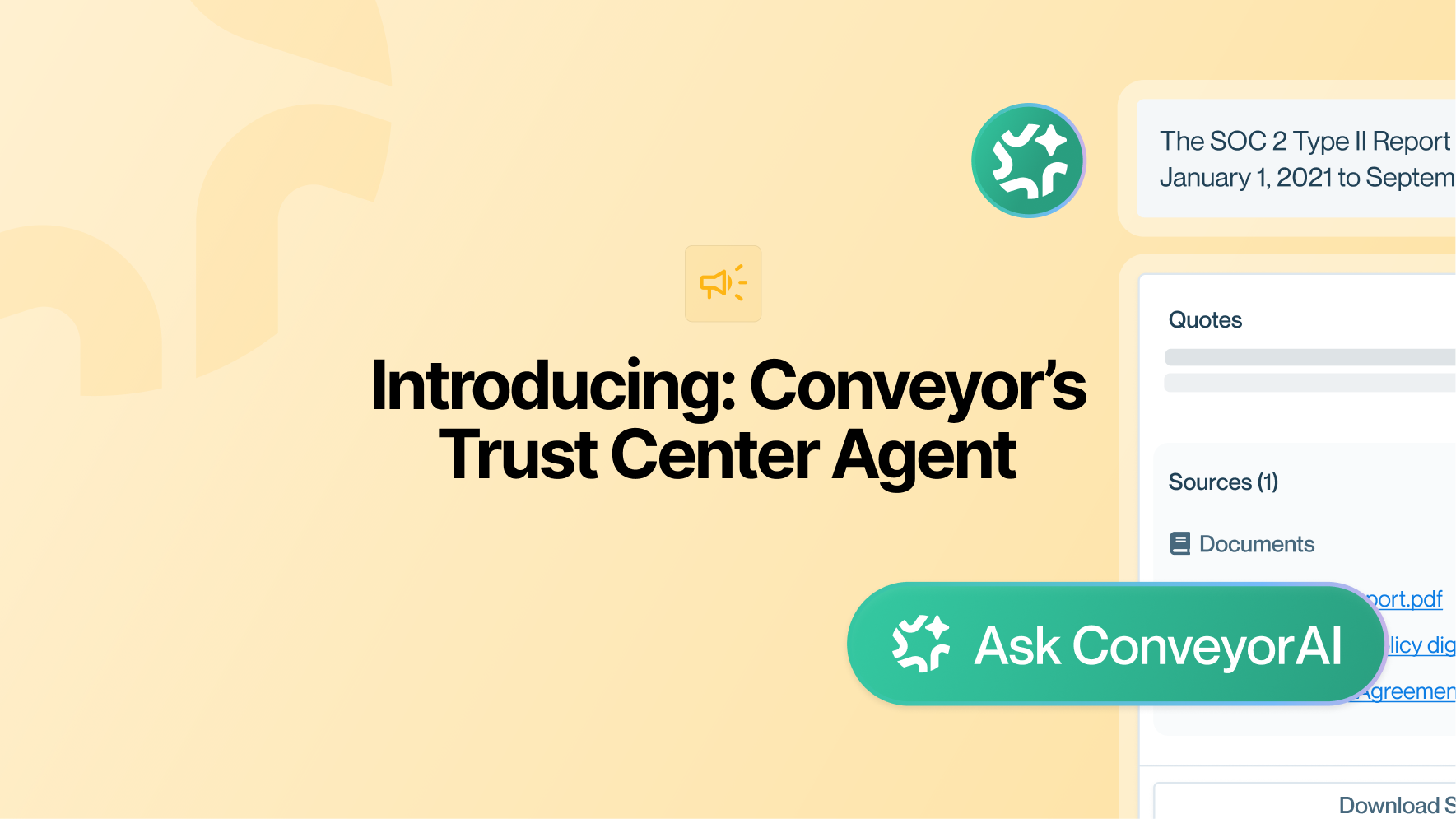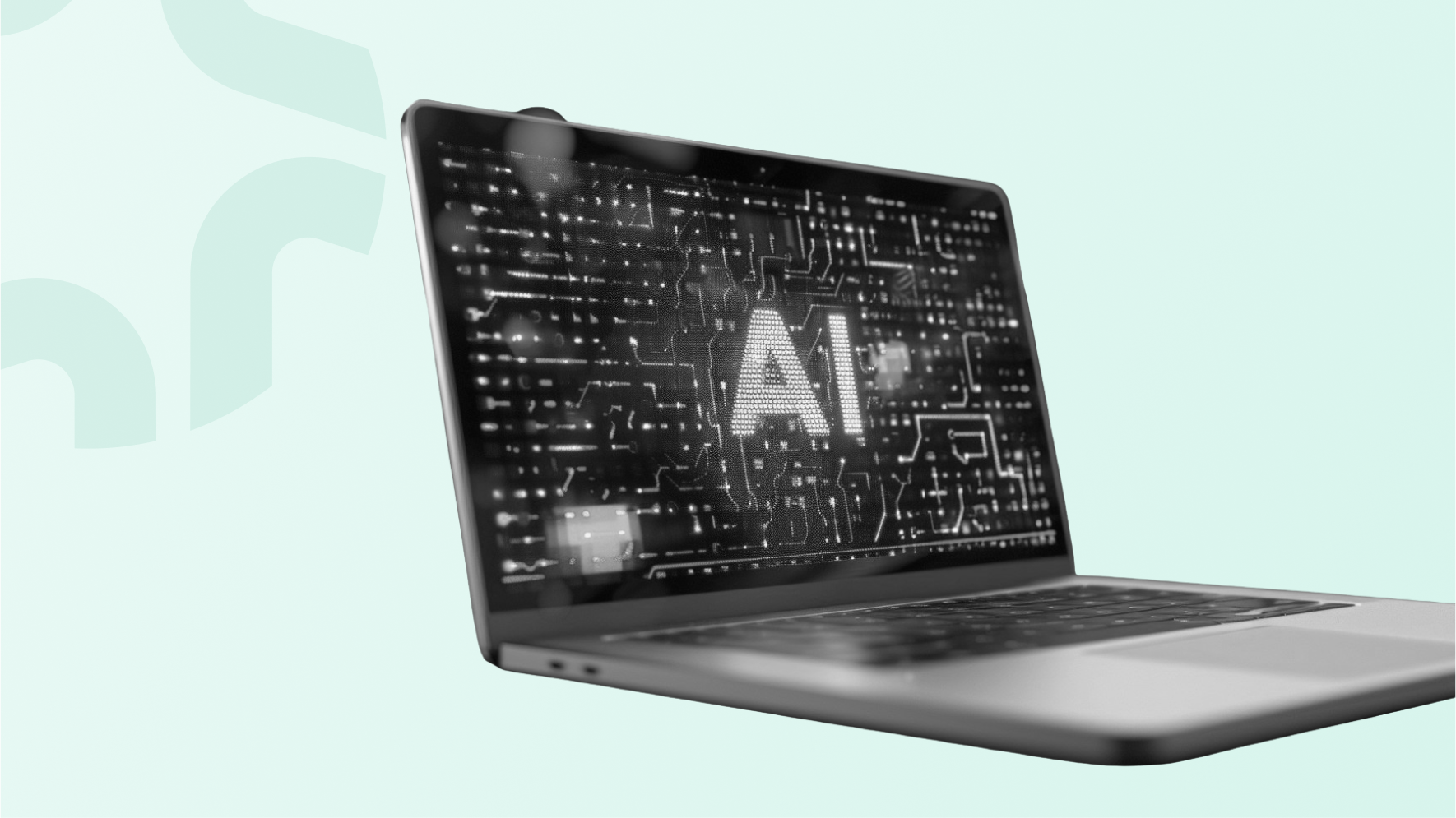We're excited to announce a breakthrough product for Security and GTM teams: the first AI Agent for Customer Trust.
Her name is Sue and she will completely transform how we do customer security reviews – hint: she’ll do almost 90% of the work.
This isn't another security questionnaire automation tool. Sue is an autonomous security expert to run a full customer review process from start to finish. Here's what makes her special.
As an AI Agent for Customer Trust, Sue can:
- Triage incoming questionnaire or other customer trust requests (like a customer requesting a SOC 2 and so on) and solve problems.
- For example, if the wrong file is attached or specific information is needed (say: an .xls password or web portal login), she can request and notify the right person until she gets the correct information needed to continue the process.
- Decide whether or not to process questionnaires based on verbally understanding your policies or processes - such as deal thresholds, content, or confidentiality levels
- Error-free processing of any questionnaire format
- Generating answers to questionnaires based on any source you give her
- Solve gaps by communicating with subject matter experts (SMEs) - in Slack or in app
- Prioritize security review queues by updating systems of record - like Jira or Salesforce - and auto-communicating information as it changes
- Send out Trust Center documentation to customers, personalized to their context
- Customize a Trust Center to fit exactly what a customer has asked for
- Deliver consistent, accurate answers that learn as your business grows
The best part?
She makes smart judgment calls based on guardrails you set, but knows when to ask for help. Sue drives automation without sacrificing quality.
The Evolution of Customer Trust: From Manual Work to AI Agents
How did we get here? The way teams complete security reviews has come a long way. Initially, it was all hands on deck - InfoSec tackled every review or questionnaire manually. Copy-paste from scattered Excel documents or outsourcing to managed service providers (who, let’s face it, still needed a lot of oversight).
This meant 100% human involvement in every step of the process, using whatever scattered tools they had.
Then came the second wave of innovation - where we've been the past few years– when teams gerry-rigged multiple tools like RFP database software, Trust Center platforms, and Questionnaire Automation software to navigate different, disconnected parts of the security review process. These tools made the overall process faster by automating specific pieces of the workflow - from answer generation to knowledge base management and team collaboration. But even if you have one or several tools, humans were doing another 80% of the unseen work: communication, collaboration, delegation, and prioritization.
A person still processes customer requests, decides how to personalize information packets depending on context, communicates status updates to the Sales team, confirms the correct file was attached…
…And those are all the steps before you even answer a security questionnaire!
Which brings us to 2024.
Breakthrough improvements in LLMs and our maniacal focus on AI accuracy for customer security questions has ushered the “third generation of security review automation”: AI agents. This is a very big shift. Previous AI solutions could handle basic tasks, but they weren't accurate enough to make independent decisions or understand the nuanced context of security requirements. And without accuracy, there is no trust. Without trust, there is no automation. This is why our commitment to AI accuracy is so critical.
For the first time, we can build AI Agents that don't just assist with individual tasks - but manage entire workflows independently.
AI Agents understand complex security requirements, make informed decisions, and know exactly when human expertise is needed - bringing human effort down to 20% of the process.
What This Means for You

This is just the beginning of what's possible when AI Agents take on customer trust activities.
Most software today still requires you - or someone on your team - to:
- Manage the project
- Do low level admin work - like triaging customer requests sent from Sales
- Communicate back-and-forth with sales and the end customer on status
- Complete questionnaires in a variety of formats
- Loop in the right experts to update corner case answers
- Manage a centralized system of knowledge, and so much more.
In conversations with our customers we find that entire teams are sometimes dedicated to simply triaging the ever expanding request queue.
This is not what high-quality, value-added security and compliance work was meant to be.
But here's what matters today: this process can now be fully autonomous.
Want to see Sue hop in your queue? Sign up for early access.


.jpg)
















.png)





















.png)











